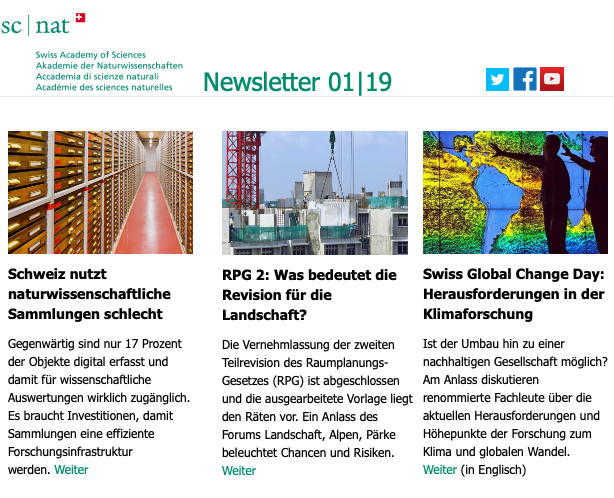Winners of the SCS Industrial Science Awards 2019
It’s our pleasure to announce the winners of the 2019 SCS Industrial Science Awards. We would like to sincerely congratulate the two winners and we are looking forward to the award lectures that will take place on the occasion of the SCS Fall Meeting at University of Zurich, Irchel Campus on September 6, 2019.
SCS Senior Industrial Science Award 2019
The prize is given to honor very successful and established investigators with outstanding achievements over many years. The winner receives a certificate and a cash check of CHF 10’000.
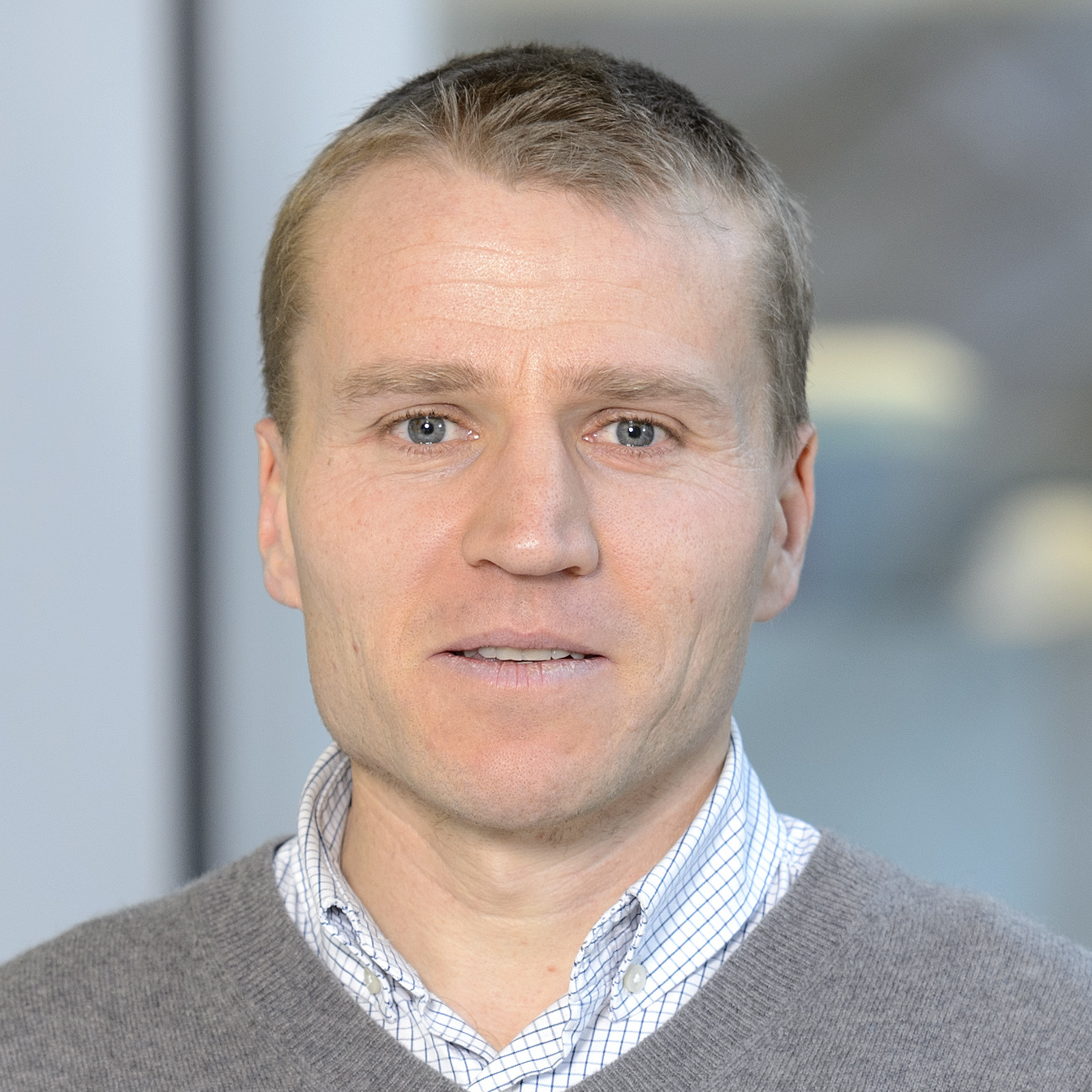 The Swiss Chemical Society awards
The Swiss Chemical Society awards
Dr. Fabrice Gallou, Novartis Pharmaceuticals AG, Basel,
in recognition of his outstanding track record of innovation and creativity in the field of organic synthesis and for his leadership in coaching and mentoring of young scientists at Novartis.
Past winners of the Senior Industrial Science Award
2018: Dr. Clemence Lamberth, Syngenta,
2017: Dr. Emmanuel Pinard, Roche and Dr. Thomas Netscher, DSM
2016: Dr. Eric Francotte, Novartis and Prof. Peter Nesvadba, BASF
2015: Dr. Michelangelo Scalone, Roche
2014: Dr. Werner Neidhart, Roche
2013: Dr. Ian Lewis, Novartis and PD Dr. Werner Bonrath, DSM
SCS Industrial Science Award 2019
The prize is given to honor successful investigators with outstanding achievements. The winner receives a certificate and a cash check of CHF 7’000.
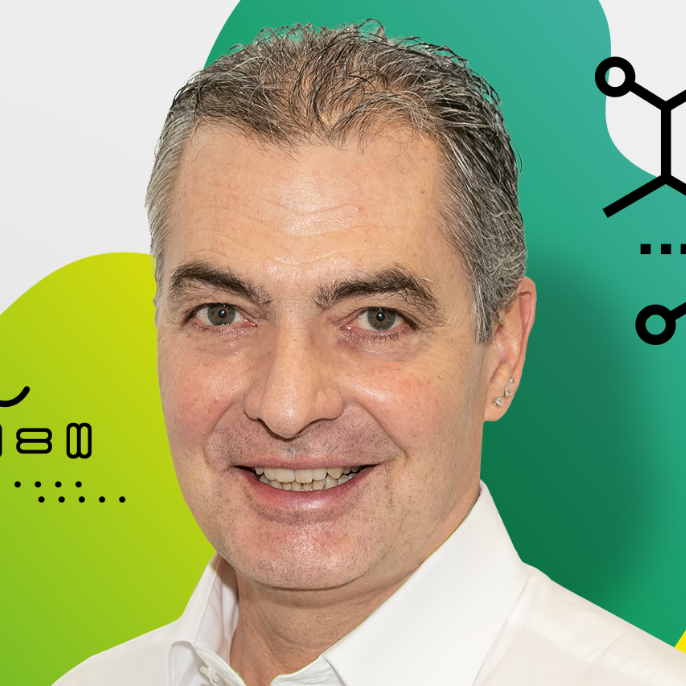 The Swiss Chemical Society awards
The Swiss Chemical Society awards
Dr. Christoph Boss, Idorsia Pharmaceuticals Ltd., Allschwil,
to honor his outstanding contributions as medicinal chemists with remarkable analytical skills and an excellent flair for multidimensional lead optimization taking into consideration all aspects of modern medicinal chemistry.
Past winners of the Industrial Science Award
2017: Dr. Richard Sedrani, Novartis
2016: Dr. Martin H. Bolli, Actelion and Dr. Andreas Herrmann, Firmenich
2015: Dr. Dietmar Hüglin, BASF
2014: Dr. Andreas Natsch, Givaudan and Dr. Wolfgang Jahnke, Novartis
2013: Dr. Mark Rogers-Evans, Roche
| * |
This award program was implemented in 2013 by the Swiss Chemical Society in collaboration with industrial partners and supporters (Roche, Novartis, Syngenta and BASF) to honor successful industrial scientists working in Switzerland. The program targets scientists from companies of any size working in the field of chemistry or chemical related sciences. |
* |
The 2019 Award Program is supported by
![]()
David Spichiger, SCS
29.01.2019
SCNAT Newsletter, Januar 2019
Schweiz nutzt naturwissenschaftliche Sammlungen schlecht
Gegenwärtig sind nur 17 Prozent der Objekte digital erfasst und damit für wissenschaftliche Auswertungen wirklich zugänglich. Es braucht Investitionen, damit Sammlungen eine effiziente Forschungsinfrastruktur werden. Weiter
RPG 2: Was bedeutet die Revision für die Landschaft?
Die Vernehmlassung der zweiten Teilrevision des Raumplanungs-Gesetzes (RPG) ist abgeschlossen und die ausgearbeitete Vorlage liegt den Räten vor. Ein Anlass des Forums Landschaft, Alpen, Pärke beleuchtet Chancen und Risiken. Weiter
Swiss Global Change Day: Herausforderungen in der Klimaforschung
Ist der Umbau hin zu einer nachhaltigen Gesellschaft möglich? Am Anlass diskutieren renommierte Fachleute über die aktuellen Herausforderungen und Höhepunkte der Forschung zum Klima und globalen Wandel.Weiter (in Englisch)
Die SCNAT schafft das grösste Wissensnetzwerk zur Landschaft
Zersiedelung, Rückgang der Landschaftsvielfalt und Biodiversität, vom Klimawandel gezeichnete Gebirgslandschaften: Um die Landschaften der Schweiz zusammen mit Politik und Gesellschaft besser zu schützen und nachhaltiger zu nutzen und zu gestalten, bündelt die Akademie der Naturwissenschaften ab 2019 diverse Aktivitäten im neuen Forum Landschaft, Alpen, Pärke. Damit entsteht das grösste Wissensnetzwerk der Schweiz zu Natur- und Kulturlandschaften. Präsident ist Felix Kienast von der Eidgenössischen Forschungsanstalt für Wald, Schnee und Landschaft (WSL). Leiterin der Geschäftsstelle ist Ursula Schüpbach.Weiter
Die SCNAT hat eine neue Geschäftsleitung
Im Januar 2019 ist die neue Leitungsstruktur der SCNAT in Kraft getreten. Die Geschäftsstelle der SCNAT ist neu in die Bereiche Wissenschaft, Wissenschaft und Politik, Wissenschaft und Gesellschaft sowie Services gegliedert und wird von einer fünfköpfigen Geschäftsleitung geführt. Generalsekretär und GL-Vorsitzender ist Jürg Pfister, stellvertretende Generalsekretärin und Leiterin des Bereichs Wissenschaft und Politik ist Karin Ammon. Stefan Nussbaum leitet den Bereich Wissenschaft, Christian Preiswerk den Bereich Wissenschaft und Gesellschaft und Susanne Hodler-Gasser den Bereich Services.Weiter
Die Nachhaltigkeit gehört in die Legislatur-Ziele
Die Feierlichkeiten zum zwanzigjährigen Jubiläum des «Leitfadens für grenzüberschreitende Forschungspartnerschaften» der Kommission für Forschungspartnerschaften mit Entwicklungsländern (KFPE) brachte Vertreterinnen und Vertreter von Forschung, Politik, Verwaltung, Wirtschaft und Nicht-Regierungsorganisationen zusammen. Die Agenda 2030 für eine nachhaltige Entwicklung müsse schnell und global vorangetrieben werden, lautete das Fazit einer Podiumsdiskussion.Weiter
Wie lässt sich das Welterbe in der Schweiz nachhaltig bewirtschaften?
Der Bericht «Sustainable Development and World Heritage Site Management in Switzerland» der SCNAT fasst die zentralen Ergebnisse einer Umfrage mit Verwaltern von Unesco-Welterbe und anderen Interessensgruppen in der Schweiz zusammen. Zum einen zeigt er die Herausforderungen und Probleme auf. Zum anderen dokumentiert er die Erfahrungen, welche die Akteure mit nachhaltiger Entwicklung in den Schweizer Welterbe-Stätten gemacht haben. Schliesslich formuliert er die Bedingungen, die für eine nachhaltige Bewirtschaftung in der Praxis nötig sind. Weiter (in Englisch)
Neuer Präsident für das Forum Biodiversität
Florian Altermatt von der Universität Zürich und der Eawag übernimmt das Forum Biodiversität in einem entscheidenden Moment als Präsident: 2019 veröffentlicht der Weltbiodiversitätsrat (IPBES) erstmals eine globale Analyse, ein Meilenstein im Dialog zur Biodiversität. Sein Vorgänger, Markus Fischer von der Universität Bern, präsidierte das Forum seit 2011 und leitete die Erarbeitung des IPBES-Berichtes zu Europa und Zentralasien. Weiter
Neue Präsidenten für SCNAT-Plattformen
Der Ökologe Christoph Scheidegger von der Eidgenössischen Forschungsanstalt für Wald, Schnee und Landschaft leitet neu diePlattform Biologieder SCNAT. In der Plattform sind 17 Fachgesellschaften der Schweizer Biologieforschung organisiert, von der Systematik bis zu den Life Sciences. Der Physiker Ernst Meyer der Universität Basel wurde zum Präsidenten derPlattform Mathematik, Astronomie und Physikmit ihren zehn Fachgesellschaften und vier Kommissionen gewählt. DiePlattform Naturwissenschaften und Regionwird neu von Pascal Mäser vom Schweizerischen Tropen- und Public-Health-Institut präsidiert. Deren 29 kantonalen und regionalen Gesellschaften engagieren sich stark im Dialog mit der Gesellschaft.
A Habitable Planet: Abstract volume of the 16th Swiss Geoscience Meeting
One of the most fundamental questions in science is why there is life on Earth. Therefore, the theme of the Plenary Session of the 16th Swiss Geoscience Meeting was "A Habitable Planet". Geoscientists not only play a crucial role in studying the evolution of planet Earth and the origins of life but can also contribute to maintaining our planet habitable and livable for future generations. Furthermore, the meeting focused on latest advances in research in geosciences. The abstract volume is now available.More
Rigi Workshop 2019: Editing the code of human life – biological, ethical and legal perspectives
The workshop "Editing the code of human life – biological, ethical and legal perspectives" aims to bring together researchers from different disciplines to learn from each other and to understand the different challenges and opportunities associated with human genome editing. Open to all PhD students from Swiss universities. Registration until 28 February 2019.More
Wasser der Alpen – Allgemeingut oder Quelle für Konflikte?
Der Tagungsband zum Alpen-Forum 2018 und zur 7. Wasserkonferenz der Alpenkonvention fasst die Referate und Poster zu Fragen der Wassernutzung im Alpenraum und zu absehbaren Wasser-Nutzungskonflikten sowie Massnahmen zu deren Vermeidung zusammen. Daneben umfasst er die Bilanz zur 7. Wasserkonferenz und die Ergebnisse eines Mappings von Hotspots der Wassernutzung im Alpenraum. Ein an die Alpenkonvention und die zuständigen Verwaltungen gerichtetes Policy Brief zeigt den Handlungsbedarf zur Vermeidung zukünftiger, klima- und nachfragebedingter Wasser-Nutzungskonflikte im Alpenraum auf.Weiter
Sind Schutzgebiete Naturlandschaften oder Profitcenter?
Wie viele Mittel sollen in Schutzgebieten in den Natur- und Landschaftsschutz, die Bildung und die Forschung fliessen? Wie viele Mittel zum Nutzen für die Gesellschaft und Wirtschaft eingesetzt werden? Über diese Frage denkt der ehemalige Leiter der Forschungskommission des Nationalparks in der neuen Ausgabe der Zeitschrift zur Forschung in Gebirgsschutzgebieten «eco.mont» nach.Weiter (in Englisch)
Solar-terrestrial physics: 3rd Swiss Scostep workshop
The Swiss National Scostep committee is pleased to announce the 3rd Swiss Scostep workshop to be held from 6 to 7 March 2019 at Physikalisch-Meteorologisches Observatorium Davos/World Radiation Center (PMOD/WRC) in Davos. This workshop aims at bringing together Swiss scientists with an interest in solar-terrestrial physics, covering the topics of fundamental solar physics, solar variability, Sun-Earth relations, and future missions and observations. It encourages a lively exchange between participants to identify synergies, foster collaborations, and strengthen the community. Information and registration
Risiken von Mikro- und Nanoplastik für Mensch und Umwelt
Derzeit geht von Mikro-Kunststoffen kein grosses Risiko für Mensch und Umwelt aus. Die Situation könnte sich bei anhaltender Verschmutzung aber ändern. Zu diesem Ergebnis kommen führende Expertinnen und Experten in einem interdisziplinären Projekt europäischer Akademien zu dem auch die SCNAT beiträgt. Die Wissenschaftler untersuchten, was über Mikro- und Nanoplastik in Natur und Gesellschaft bekannt ist, was teilweise und was nicht. Ihr Bericht legt nahe, dass Mikro-Kunststoffe aufgrund ihrer Konzentration in der Umwelt und in der menschlichen Nahrung keinen Schaden anrichten. Weniger sicher sind hingegen die Auswirkungen von Nano-Kunststoffen, die nur schwer messbar sind. Weiter
Akademie der Naturwissenschaften Schweiz (SCNAT)
Haus der Akademien | Laupenstrasse 7 | 3008 Bern
Andres Jordi | Tel. 031 306 93 23 | www.scnat.ch
Fragen und Anregungen:
David Spichiger, SCS
05.02.2019
ChemPubSoc Europe News, January 2019
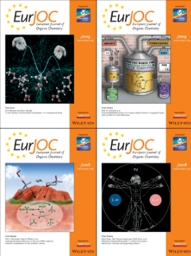 EurJOC: Special Issue on Organic Reaction Mechanisms
EurJOC: Special Issue on Organic Reaction Mechanisms
EurJOC’srecent Special Issue, guest-edited by Peter R. Schreiner (Justus Liebig University Giessen), highlights great research in the diverse field of Organic Reaction Mechanisms conducted by researchers from across the globe. The entire issue is free-to-read until the end of February 2019. Discover more: Organic Reaction Mechanisms.
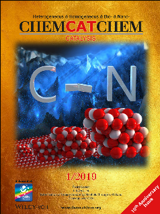 ChemCatChem: 10th Anniversary Issue
ChemCatChem: 10th Anniversary Issue
Celebrating a Decade of Catalysis: This Anniversary Mega-Issue is dedicated to the people that have made the journal the success it is today, i.e. authors, reviewers, readers, board members, chairs, colleagues, and society partners. Discover nearly 60 primary and secondary research articles from over 260 authors from more than 20 countries. The entireissue is free-to-read throughout 2019.
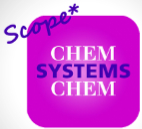
ChemSystemsChem Welcomes Your Submission
If you are curious about ChemSystemsChem'sscope, then check out this small virtual collection of articles on systems chemistry from its sister journals. If you work on similar topics, ChemSystemsChemwould be the ideal platform for your work.
For more information, also read the Editorial by Editor Greta Heydenrych and Editorial Board Chairs Wilhelm Huck (Radboud University, Nijmegen, the Netherlands) and Ludovic Jullien (Sorbonne University and École Normale Supérieure, Paris, France).
David Spichiger, SCS
24.01.2019
Prof. Hans Dahn: Congratulations for your centenary
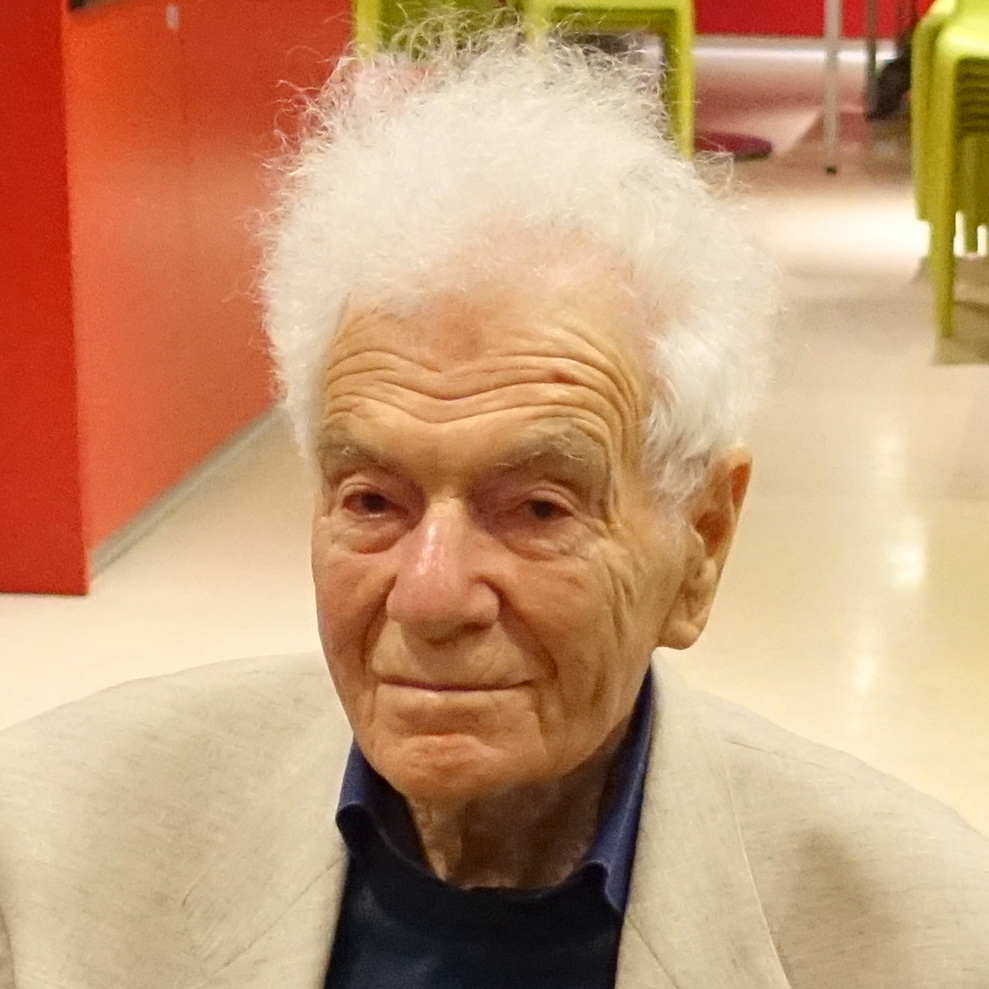
Professor Dahn was just 20 years old in 1939 when he published together with Prof. H. Erlenmeyer of the University of Basel his first manuscript in the Helvetica Chimica Acta. The work was about chromatography of inorganic compounds. He continued his chemistry studies in the laboratory headed by Prof. Paul Ruggli, and in 1944 he obtained a Ph.D. degree from the University of Basel. He remained in the same institute headed by Prof. Tadeusz Reichstein (Nobel Prize in 1950) and carried out independent research. In 1957 he signed his 45thpublication as an independent investigator and was nominated extraordinary Professor in the same Institute. In 1961 he accepted a nomination as full-professor at the University of Lausanne and succeeded to Professor Henri Goldstein. At that time the organic chemistry in Lausanne was represented by four scientists, one professor, one "chef-des-travaux" and two doctoral students. This was not an Institute yet, but a laboratory which published 4 articles this year, with a budget of CHF 50'000 that included the professor installment credit and the cost of the chemistry library. In 1966 the laboratory of organic chemistry became the Institute of Organic Chemistry (ICO) of the University of Lausanne (UNIL). In less than 12 years four professor positions were added to this new Institute and office and laboratory space was created in the old building at the Place du Château 3, and in the vicinity. In 1985, the ICO published 40 articles in referred journals. For the period 1988-1992, an American office put the chemistry of the UNIL (ICO + Institut de chimie minérale et analytique (ICMA)) at the 11thrank in Europe.
When Professor Dahn retired in 1989, the credits obtained by the ICO amounted to CHF 932'000 from the Canton de Vaud, and CHF 1'253'00 from the Swiss National Science Foundation. Professor Dahn has been a member of the scientific council of the Swiss National Science Foundation for 10 years and during that time has helped to promote scientific research and organic chemistry in Switzerland.
Scientific contributions of Professor Dahn have concentrated on the study of reaction mechanisms and on the invention of new analytical methods, especially the use of heavy oxygen isotopes, first 18-O, than 17-O. Already in 1961, and together with Prof. P. Diehl of the University of Basel, he signed a first publication on 17-O-NMR spectroscopy. After his retirement, Professor Dahn published 20 articles in the field of 17-O-NMR spectroscopy. He is a member of the Swiss Chemical Society since 1948.
Prof. hon. Pierre Vogel, ISIC, EPFL
David Spichiger, SCS
28.01.2019
Swiss Website to collect IYPT 2019 Initiatives
The Periodic Table of Chemical Elements is one of the most significant achievements in science, capturing the essence not only of chemistry, but also of physics and biology.
1869 is considered as the year of formulation of the modern concept of the Periodic System by Dmitri Mendeleev (and others). 2019 is the 150th anniversary of the Periodic Table of Chemical Elements and has therefore been proclaimed the "International Year of the Periodic Table of Chemical Elements (IYPT2019)" by the United Nations General Assembly and UNESCO.
Share your IYPT2019 activities in Switzerland by submitting your initiative via our online form and let the world know about it via #IYPT2019 on Instagram, Facebook and Twitter.
Swiss Website for the IYPT 2019
David Spichiger, SCS
28.01.2019
Page 74 of 303

